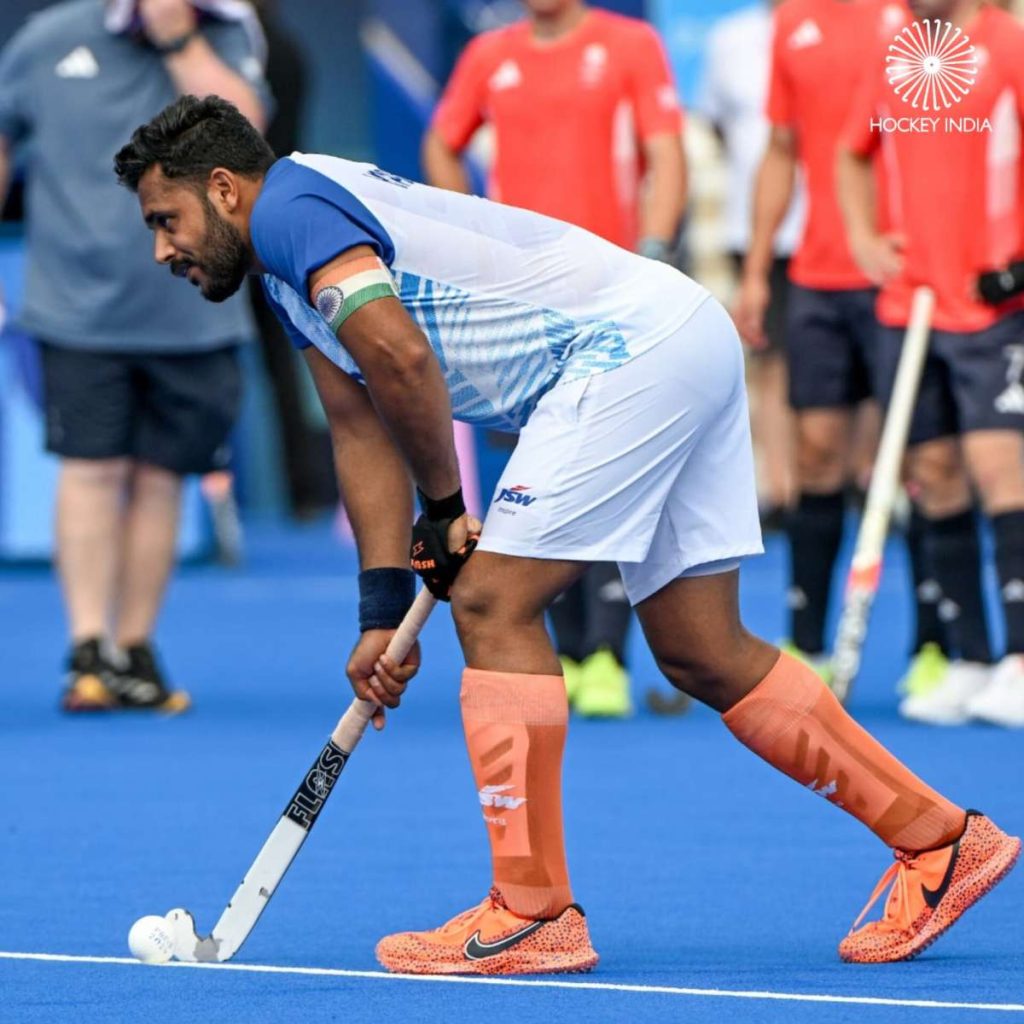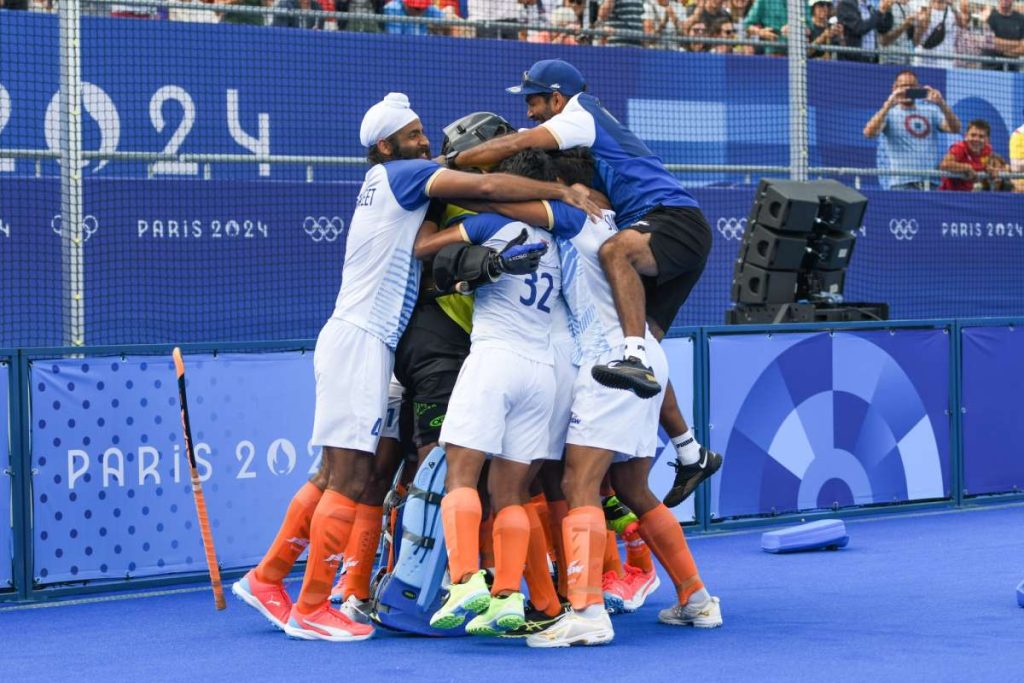The team India now has to play with one player less, 15 instead of 16 in the squad, which could impact their performance significantly…reports Asian Lite News
The Indian men’s hockey team gears up for the all-important clash against Germany without key defender Amit Rohidas in the Paris Olympics semifinals here on Tuesday and will need to take care of some key points during the clash.
The Indian team will face several challenges in the semifinal match, primarily related to recovery and tactical adjustments. After playing a nerve-jingling and energy-sapping clash with Great Britain in the quarterfinals on Sunday, India will have to take care of many issues in the clash.
To overcome the challenges to be faced in the upcoming semifinal match, the Indian team should consider implementing the following key strategies.
Physical and mental recovery
This will be the key aspect of the match against Germany. The Indian team needs to recover physically, mentally, and emotionally after the intense quarterfinal match, which went to the shoot-out. This includes proper rest, nutrition, and mental conditioning to ensure players are at their best.
“Recovering physically, mentally, emotionally is going to be the key. These sorts of games drain you completely. So it has drained them. So, the first thing is they have to recover,” M.M Somaya, the 1980 Games gold medallist, said.

Player shortage
India will also have to recover from player shortage as Amit Rohitas has not received a reprieve from the disciplinary committee and the Jury of Appeal. The team now has to play with one player less, 15 instead of 16 in the squad, which could impact their performance significantly.
“We will have to play one player shot from the 16. And in today’s rules of rolling substitution, where they make 40-50 changes in a match, one player short means your options are limited as compared to the opposition. So, that’s a handicap (for the Indian team),” said Somaya.
So, while taking care of these things, the Indian team will also have to come up with sound tactical planning to overcome this handicap.
The team needs to prepare strategically for Germany, as they are the reigning World Champions and very tough opponents playing with fewer players against such an opponent requires careful planning to maximise their effectiveness on the field.
The team needs to develop a game plan that accommodates the potential absence of a key player (Rohidas). This may involve adjusting formations and roles to maintain team balance and effectiveness.
The team also needs to conduct a thorough analysis of Germany, focusing on its strengths and weaknesses. They should tailor the game strategy to exploit the opponent’s vulnerabilities while reinforcing the team’s defensive and offensive capabilities.
By focusing on these strategies, the Indian team can enhance its chances of success in the semifinal.
The team also has some positives that it can bank on in the semifinal and one of the main confidence boosters is its past performance in the semifinals, which significantly influences its current approach in several ways.
The team’s recent success in reaching the semifinals of the Tokyo Olympics after a long gap has boosted the players’ confidence. This historical achievement serves as motivation to perform better and aim for the final in Paris.

The past semifinal experiences provide valuable lessons in handling pressure situations. The team can analyse previous matches to identify what strategies worked and what didn’t, allowing them to refine their approach.
After a narrow 1-2 defeat to defending Olympic champions Belgium, the team came back brilliantly to outplay Australia in their final league match, beating Australia in the Olympics for the first time in 52 years.
The team has so far shown resilience in tough matches, which is crucial for the semifinals. Their ability to play tactically smart rather than just relying on a traditional attacking style reflects a mature approach to the game.
The shift from playing attractive hockey to effective hockey indicates a strategic evolution. The team now prioritises winning through tactical discipline, which is essential against strong opponents in the semifinals.
Overall, if the Indian team takes care of these points, it can overcome the challenge posed by World Champion Germany and advance to the final for the first time since the 1980 Games in Moscow.
ALSO READ: Paris Olympics: Rasquinha Warns of Tough GBR Quarterfinal













